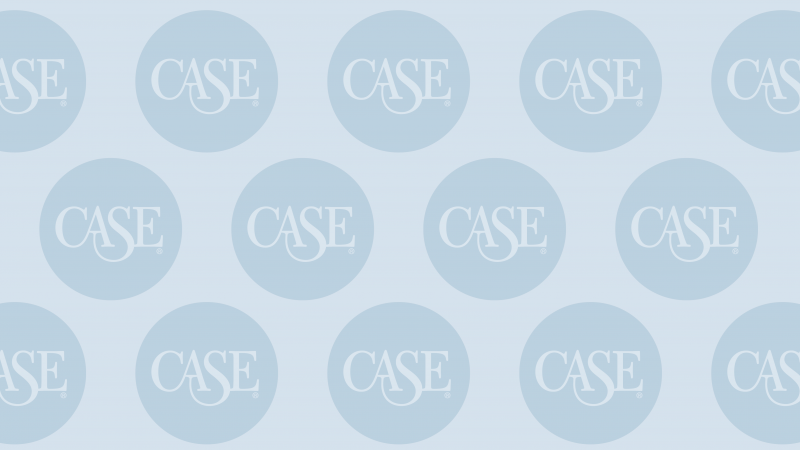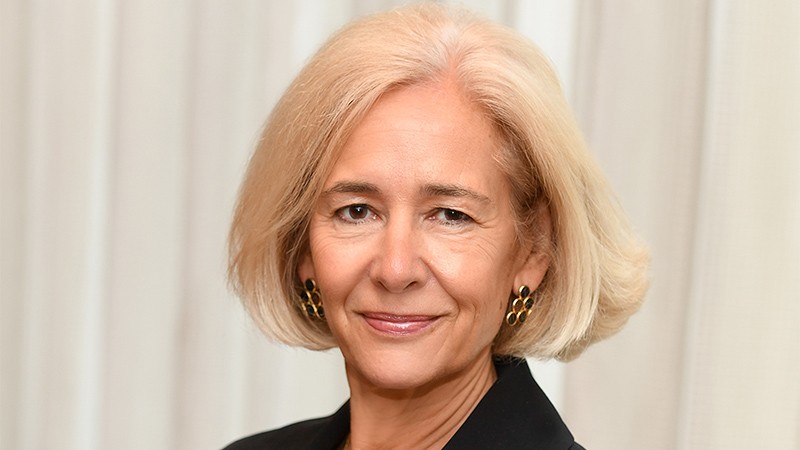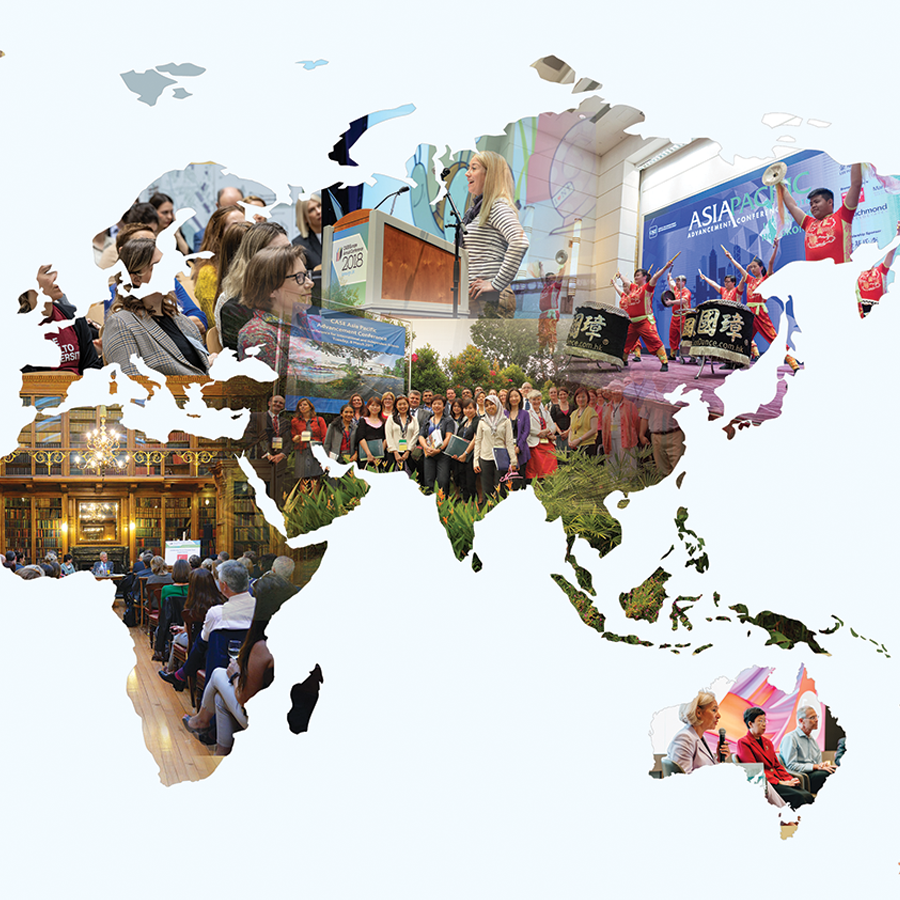
Every day, advancement professionals work to make a difference at their institutions—opening opportunities for students, alumni, and communities across the globe.
CASE was founded in 1974 when two U.S. associations merged: the American College Public Relations Association and the American Alumni Council. But its very first conference focused on international alumni relations, and since then, CASE has opened offices in London, Singapore, and Mexico City, expanding opportunities around the world. Now, CASE member institutions are located in 80 countries worldwide. Advancement professionals gather for CASE programs in cities from Seattle, Washington, U.S., to Cartegena, Colombia, to Riga, Latvia, to Melbourne, Australia.
“Professionals work to advance education at institutions in every part of the world,” says Sue Cunningham, CASE President and CEO. “CASE ensures that there are professional standards, guidelines, and opportunities for learning and growth for our members in every continent and at every type of not-for-profit secondary and tertiary institution.”
And, she stresses, a global outlook is essential to CASE’s (and the profession’s) future.
“Many elements of advancement—and truly some of the biggest issues facing the profession today—are interconnected and global in their impact and importance. Working together across borders creates opportunities for growth and innovation that enrich our work in advancement and enhance our institutions’ impact,” she says.
Here are some of these key milestones on that global journey.
Global Highlights
1994:
CASE’s London office opens, establishing the organization’s international presence.
2004:
The CASE Board and CASE Europe Board meet at INSEAD in Fontainebleau, France. They adopt the Fontainebleau Principles, a framework for continuing CASE’s global evolution.
2007:
The boards meet at Oxford University, U.K., and agree on 10 key points to expand the Fontainebleau Principles, called the Oxford Accord.
2007:
CASE’s International Committee crafts a framework on emerging global opportunities: the Nichols Principles, named for former committee chair Scott Nichols.
2007:
CASE’s Singapore office opens.
2010:
The CASE Board and CASE Europe Board meet in Washington, D.C. They create the Washington Affirmation confirming that “CASE is one global organization.”
2011:
CASE establishes an office in Mexico City.
2018:
CASE holds its first Middle East conference.
2020:
The new CASE governance model creates one global board with regional councils.
2020:
CASE accelerates its expansion of online programming during the COVID-19 pandemic—opening more opportunities for global participation.
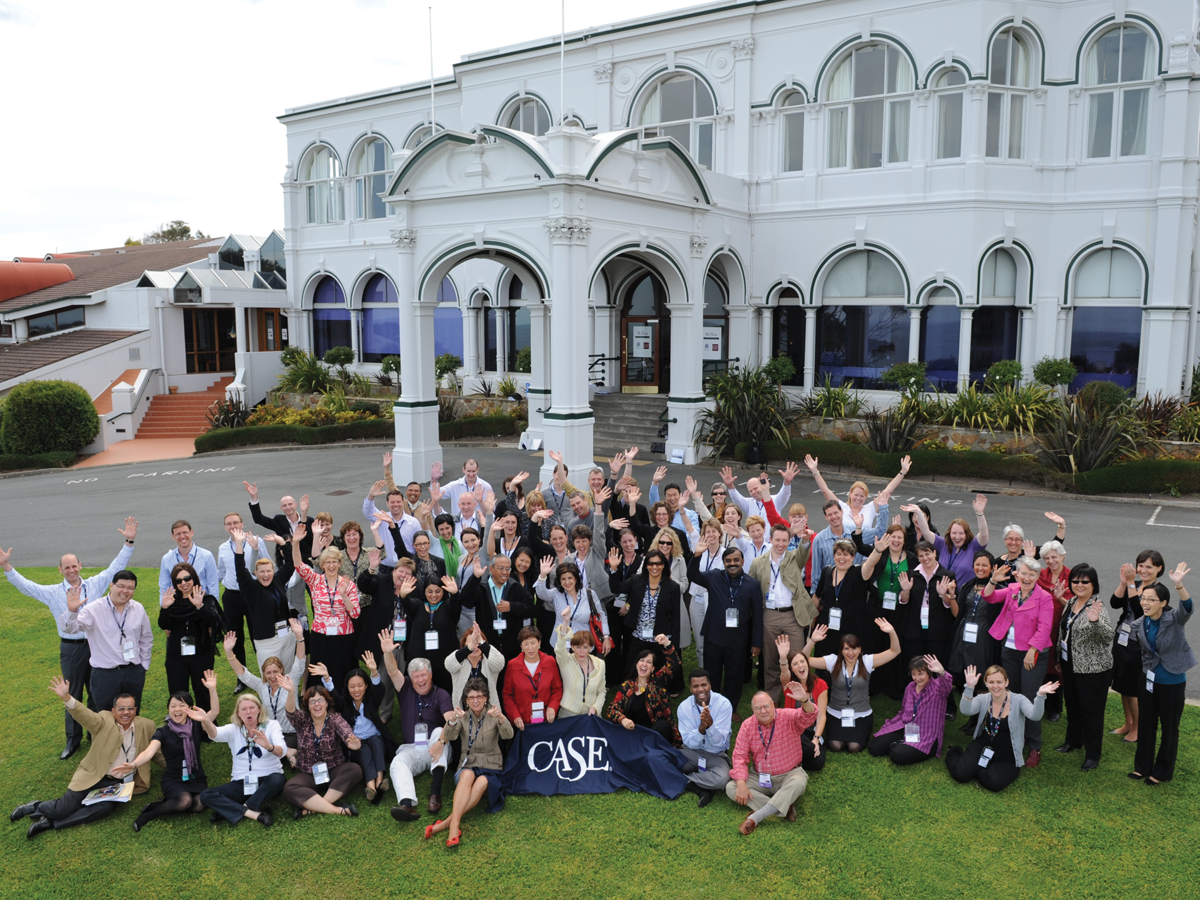
GREETINGS FROM VICTORIA: Delegates gathered in Mount Eliza, Victoria, Australia, for the 2009 Asia-Pacific Institute in Educational Fundraising.
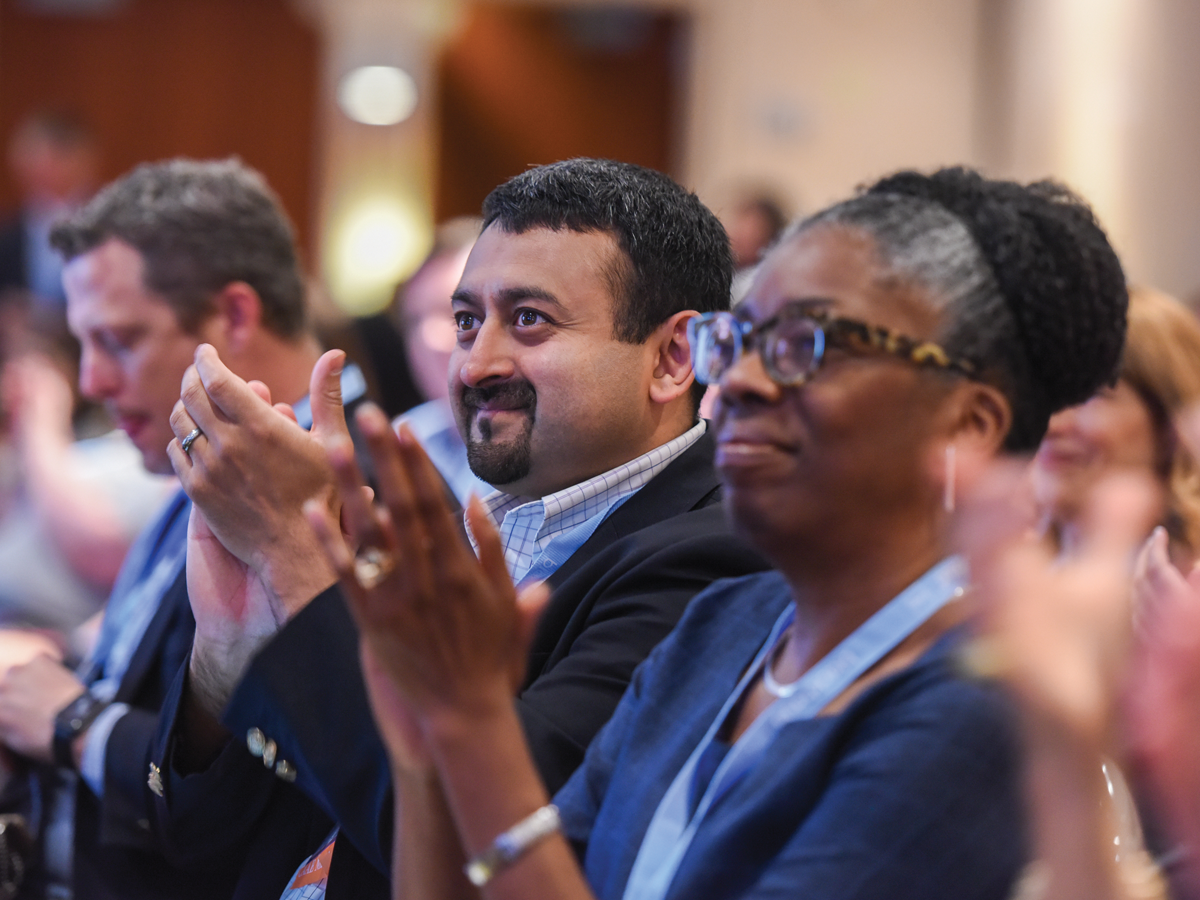
GLOBAL GATHERINGS: CASE conferences and activities bring advancement professionals together in cities around the globe, from Cartegena, Colombia, to Riga, Latvia, to Melbourne, Australia, and New York City, U.S. (where the Summit for Leaders in Advancement, pictured here, was hosted in 2018).
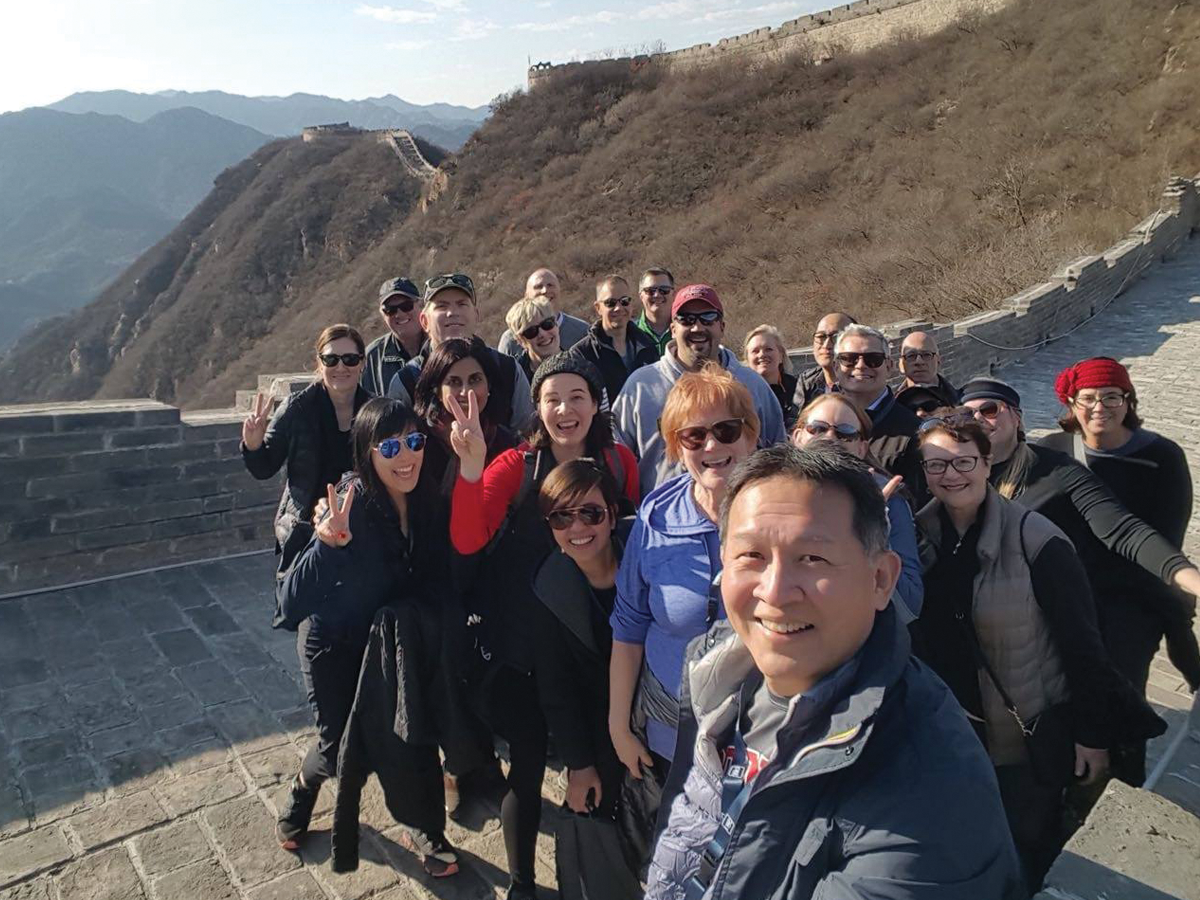
SIGHTS ALONG THE STUDY TOUR: CASE's Study Tours gave participants an opportunity to visit campuses in various global destinations. The 2017 Asia-Pacific International Fundraising Study Tour visited Beijing, China, and Hong Kong. Participants had the chance to hike along the Great Wall of China.
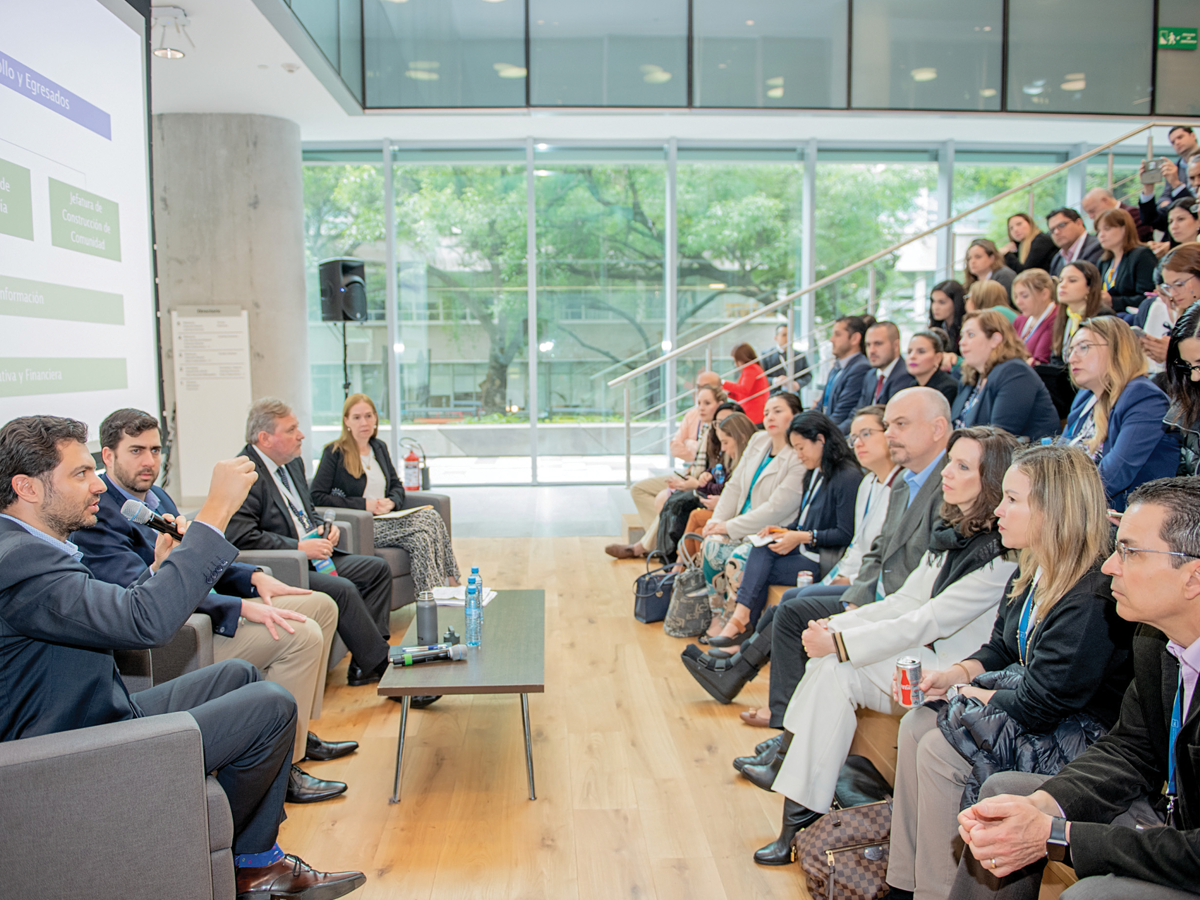
CONVERSATIONS IN COLOMBIA: The 2023 Congreso CASE América Latina drew advancement professionals across the region to Cartegena, Colombia.

LOCAL SOUNDS: A bagpiper plays at the 2022 CASE Europe Annual Conference in Glasgow, Scotland.
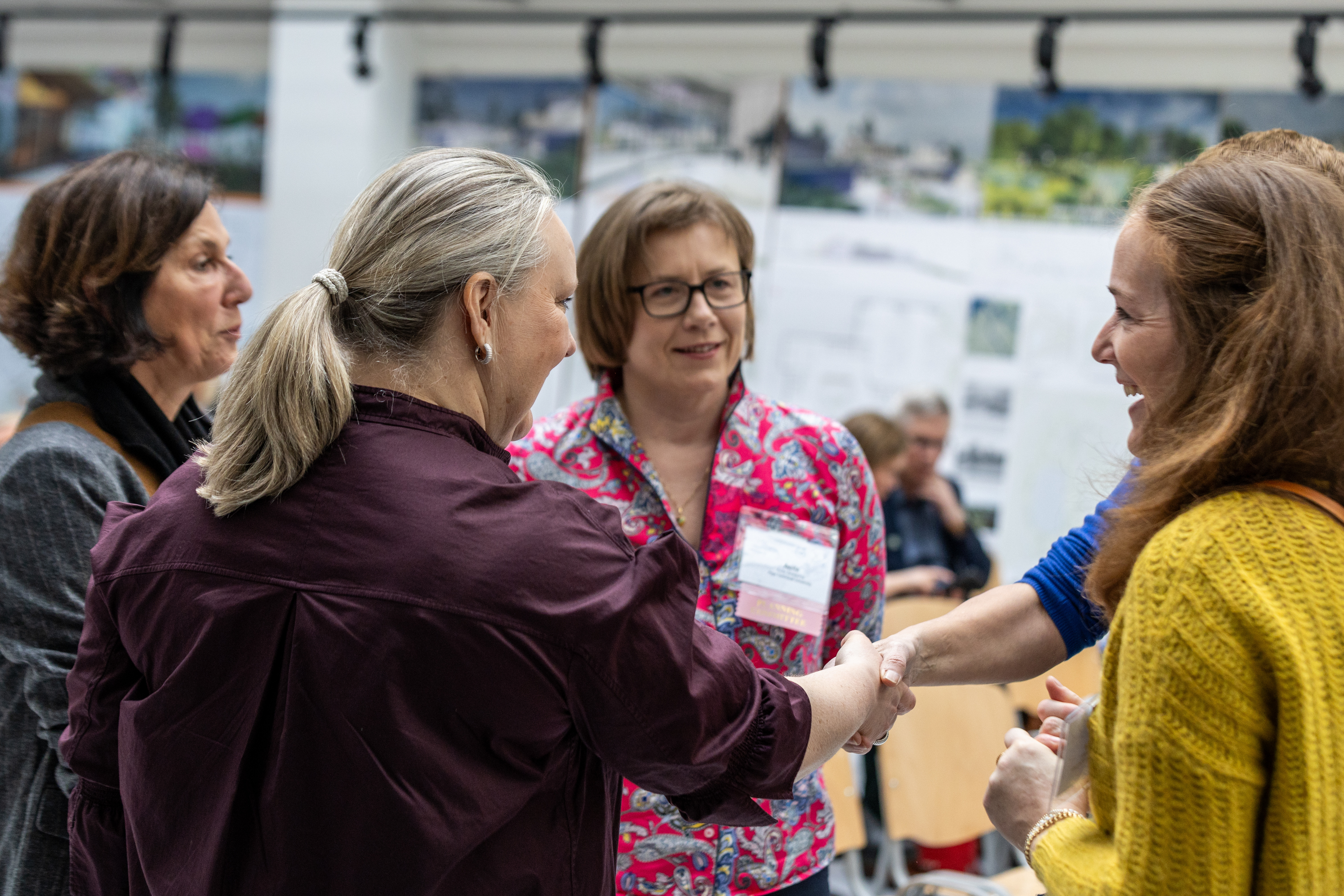
CONNECTIONS AND CONVERSATIONS: The 2024 Nordic Summit convened at Riga Technical University in Riga, Latvia, featuring facilitated group "campfire sessions."
Global Guides
These guiding principles, developed by CASE’s volunteer leadership, have led this work.
- “CASE is and will continue to be a global organization.”
- “CASE will provide programs and services tailored to regional needs. … [And] CASE will consistently seek to include global perspectives in its major programs and publications.”
The Fontainebleau Principles, 2004
- “CASE will pursue its growth and development as both an international organization (one that incorporates international perspectives into its
- overall operations) and as a global organization (one that provides services appropriate to various regions around the world).”“A commitment to excellence and to the highest professional and ethical standards will be the hallmark of CASE operations around the world.”
- “CASE will respect both cultural differences and core principles related to educational advancement.”
The Oxford Accord, 2007
- “There is no one model. We do not have a template for international activity that we seek to impose on colleagues around the world.”
- “CASE cannot work in isolation in unfamiliar territory. We will favour opportunities where groups of practitioners are working together and actively reaching out to CASE.”
The Nichols Principles, 2007
- “[CASE will] actively develop our roles and responsibilities as the world’s leading association for institutional and professional development in the field of educational advancement.”
- “[CASE will] pursue a global vision that advocates for governmental and institutional policies and encourages philanthropy and volunteerism to create a supportive climate for educational advancement.”
Washington Affirmation, 2010
Growing CASE’s Worldwide Footprint
- Since 2020, CASE has had one global board, with Regional Councils for U.S./Canada, Europe, Asia-Pacific, and Latin America, and District Cabinets in U.S./Canada and Europe.
- Today, CASE member institutions are located in 80 countries.
- In 2024, 600 institutions in 28 countries submitted entries for CASE’s Circle of Excellence Awards.
- CASE hosts dozens of programs around the globe, including flagship annual gatherings in each region: the CASE Asia-Pacific Advancement Conference, the CASE Europe Annual Conference, Congreso CASE América Latina, and the Summit for Leaders in Advancement.
About the author(s)
Meredith Barnett is the Managing Editor at CASE.
Tags
Article appears in:

September - October 2024
Celebrate CASE's 50 anniversary! Explore CASE's history, global journey, and signature activities that serve the profession, like research, training, mentoring, and more.
